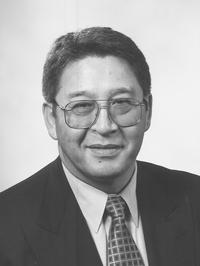Ming Pak: Difference between revisions
Jump to navigation
Jump to search
mNo edit summary |
mNo edit summary |
||
| Line 54: | Line 54: | ||
}} | }} | ||
Ming Pak was a Corummese and later Caphirian microbiology scientist. He was a leading scientist in the early stages of the Corummese biological weapons program and was later sent to work for the Caphirian [[ABLS|Office of Applied Biochemistry and Life Sciences]] as part of a secret research cooperation agreement between the two nations. Pak served as Director of the State Institute of Biochemistry (1941-1948) and Head Scientist of the Laboratory of Toxicology (1948-1951) at the Corummese Institute of Protein. Later in life he served on the board of directors of [[ToxiCor]]. | Ming Pak was a Corummese and later Caphirian microbiology scientist. He was a leading scientist in the early stages of the Corummese biological weapons program and was later sent to work for the Caphirian [[ABLS|Office of Applied Biochemistry and Life Sciences]] as part of a secret research cooperation agreement between the two nations. Pak served as Director of the State Institute of Biochemistry (1941-1948) and Head Scientist of the Laboratory of Toxicology (1948-1951) at the Corummese Institute of Protein. Later in life he served on the board of directors of [[ToxiCor]], the world leading producer of the drug Captagon. | ||
==Corummese Career== | ==Corummese Career== | ||
==Caphirian Career== | ==Caphirian Career== | ||
Revision as of 23:11, 26 September 2022
Ming Pak | |
|---|---|
 Ming Pak in 1962 | |
| Born | June 28 1910 |
| Died | March 30 1988 |
| Cause of death | Lung cancer |
| Nationality | |
| Other names | Doctor Pox |
| Alma mater | Mirzak State University |
| Scientific career | |
| Fields | Biological Warfare, Virology |
| Institutions | State Institute of Microbiology Processes Office of Applied Biochemistry and Life Sciences |
Ming Pak was a Corummese and later Caphirian microbiology scientist. He was a leading scientist in the early stages of the Corummese biological weapons program and was later sent to work for the Caphirian Office of Applied Biochemistry and Life Sciences as part of a secret research cooperation agreement between the two nations. Pak served as Director of the State Institute of Biochemistry (1941-1948) and Head Scientist of the Laboratory of Toxicology (1948-1951) at the Corummese Institute of Protein. Later in life he served on the board of directors of ToxiCor, the world leading producer of the drug Captagon.